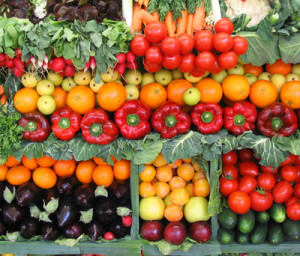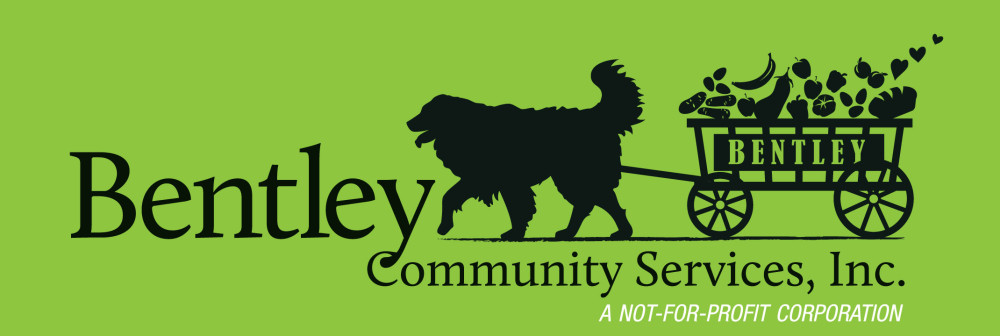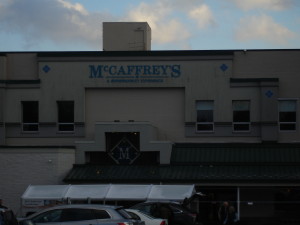One of the fields of farm fresh tomato plants growing at Norz Hill Farm, one of our generous provider farms. Volunteers from Bentley provided assistance in helping cover the new plantings with plastic to help get them started. So happy and welcome getting our helping hands dirty!
Monthly Archives: May 2014
Food Drive at McCaffrey’s in Princeton
PLEASE HELP REPLENISH OUR EMPTY SHELVES
SATURDAY, JUNE 7, 2014
A Healthy Food Pantry and More for Struggling Families Who Do Not Receive Assistance and Need Help Due to the Unstable Economy
908-227-0684
www.bentleycommunityservices.org
PLEASE CHOOSE FROM THE FOLLOWING LIST:
Pasta, rice, soup, peanut butter, canned tuna, cereal, oatmeal, jam/jelly, marinades, salad dressing, sauces, gravy, snack bars, gluten-free products, canned beans, canned fruits, crackers, mayonnaise, mustard, ketchup, coffee, tea, cooking oils, sugar, flour, juice, tomato sauce, canned fruits, nuts, macaroni & cheese, soap, shampoo, conditioner, toothpaste, toothbrush, deodorant, body lotion, razors, shaving cream.
Thank you for your generous contributions!
We Are Having Our First Financial Seminar!
To help our participant families pursue their financial goals, Bentley Community Services is having its first financial seminar. This class is designed to help our participant families understand their finances, prepare household budgets and to control spending. They are committed to putting order in their financial life and will learn how to prepare a workable budget and to pursue practical goals with their finances. Thank you to George Jarvis, former NYC Banker, for being our financial facilitator and to Pastor Tony and Montgomery United Methodist Church, where the financial seminar will be held. We certainly are grateful!
BENTLEY Community Services Financial Seminar
Thursday, June 12 and June 26, 2014 – 7:00 – 9:00PM
Montgomery United Methodist Church
Food Sustainability
 We read a very interesting article about food sustainability and would like to share it with you below:
We read a very interesting article about food sustainability and would like to share it with you below:
“For those who missed it, USDA’s February report (by Buzby, Wells, and Hyman) on Estimated U.S. Food Losses at the Retail and Consumer levels provides a valuable update on just how much edible food is being lost each year in the U.S. The study, based on 2010 data, indicates that 31% of the food available for consumption (133 billion pounds) at the retail and consumer levels was not consumed. In dollar terms, that translates to about $162 billion. In caloric terms, it translates to 1,249 of 3,796 calories available per each American daily. Clearly, these numbers are large and very concerning.
The authors point out three basic reasons for rising interest in food losses. One, food loss reflects a loss of money and other resources consumed in the production of that lost food. Two, food loss implies “negative externalities” throughout the entire food supply chain — such as air and water pollution, needless consumption of scarce resources, and the opportunity cost of human capital expended in the production process. Three, with the world population continuing to grow (and expected to hit 9 billion by 2050), we will simply need more food to feed more people (many of whom will have increased levels of disposable income).
The authors note that estimates of food losses in reports such as this can serve as baselines for both policymakers and food industry personnel to develop initiatives to reduce food waste throughout the supply chain. In that, they are spot on. This report should be used by all manner of entities in the food sector as a wake-up call to seek out efforts to reduce food losses and waste. Partnerships with charitable food organizations should be formed to reduce needless food waste while routing high quality calories to those in need. Growers should seek to develop innovative new products with food that is currently withheld from market (for cosmetic or size reasons) while also seeking donation opportunities that help others while benefiting their brand. Retailers should seek to reduce “accepted” waste levels in the produce segment while building relationships that allow them to divert excess food from landfill to food banks. Prepared food operations should partner with local pantries for prompt pick-up of excess production.
Enormous potential exists for multiple stakeholders to “win” through such partnerships. Hungry individuals gain high quality calories. Environmental externalities (especially air pollution and water pollution) are reduced when excess food is kept out of landfills. Donors win financially through tax deductions and reduced disposal costs. And, not to be overlooked, donors also win through the creation of an improved workforce. Individuals increasingly seek meaning through their work. Organizational commitment to food-donation partnerships improves morale and inspires workers, thus improving retention and leading individuals to look for creative solutions to reduce waste in other areas. As Simon Sinek notes in his powerful TED talk, people don’t care about what you do, they care about why you do it. Organizations that seek to help people and the environment through food donation programs demonstrate a high form of social responsibility. They understand the importance of the “why” — and they will be well-regarded in the marketplace (by both consumers and employees).”


